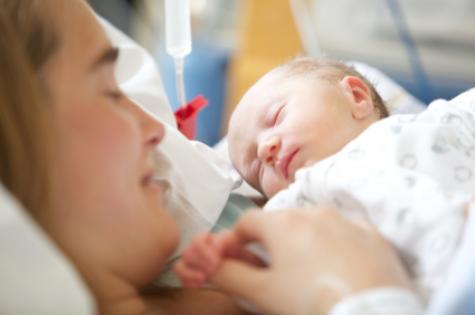For most women pregnancy is an extraordinary journey with a wonderful, life-changing result. Sadly, not all mums-to-be experience pregnancy with a full bill of health. An Australian study has found that cancer in pregnancy, although rare, is on the increase.
What’s promising is that the prognosis isn’t always grave, as cancer research has come a long over the last two decades. Today, pregnant women with cancer can give birth to a perfectly healthy baby and some cancer treatments are safe during pregnancy.
The study, co-authored by my colleague Associate Professor Christine Roberts from the Kolling Institute of Medical Research at Royal North Shore Hospital, examined 1.3 million births over a 14 year period (1994 to 2008). It showed the incidence of cancer diagnosed in pregnancy or within a year of childbirth had risen by 70%.
During the same period maternal age also increased. The percentage of women aged 35 years and over increased from 13.2% to 23.6% in NSW. Although the mother’s age is a strong risk factor, this increase in maternal age explained only 14% of the increase in cancer occurring.
So what factors can explain the remaining 86% of the increase? It is possible that improved diagnostic techniques and earlier detection could be attributed to the rise. Furthermore, pregnancy increases women's interaction with health services and the possibility for diagnosis is therefore increased.
We also believe that genetic and environmental origins of pregnancy-associated cancers are likely to pre-date the pregnancy, however the hormones and growth factors necessary for a baby to develop may influence tumour growth.
The most common cancers detected were melanoma, breast cancer, thyroid cancer and gynaecological cancers. Fortunately, a pregnant woman with cancer is capable of giving birth to a healthy baby. The study found no evidence of harm to the babies of women with cancer – they were not at increased risk of reduced growth or death.
It’s also important to mention that some cancer treatments are safe during pregnancy. Decades of dedicated medical research have not only improved detection, they’ve enabled us to offer pregnant women safe and effective cancer therapies. 20 years ago it was thought that being pregnant might worsen the cancer prognosis and treatments could harm the fetus so a pregnant woman with cancer would most likely be advised to terminate her pregnancy.
Despite the rise in pregnancy-associated cancer, I’d like to note that it’s very rare, affecting about two in every 1,000 pregnancies.
There’s also little research in this area. We need to continue advancing our knowledge so that we can improve outcomes for women who are facing cancer during such a significant time in their lives.
At the Kolling Institute our researchers are committed to discovering new ways to combat cancer. With a strong focus on breast and ovarian cancers, our Tumour Bank is the largest and most comprehensive in NSW. It offers researchers unique opportunities to learn about changes that occur in cancer cells, which helps them develop new methods to diagnose and treat this disease.
With support from the community we’ll continue to expand our Tumour Bank to encompass a broad range of cancers and our research will make a difference in the lives of many more people, including expectant mothers.
To find out more about research at the Kolling Institute or to support cancer research with a donation please visit www.kolling.com.au
* The study has recently been published in BJOG: An International Journal of Obstetrics and Gynaecology.

















__small.png)










